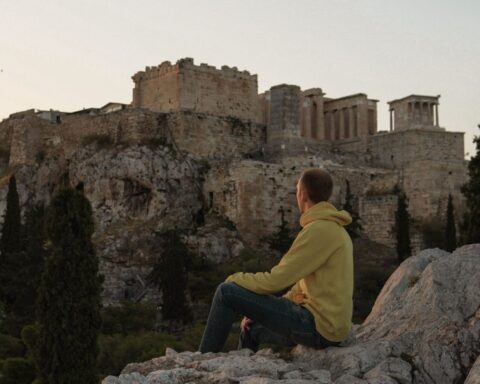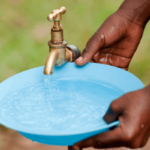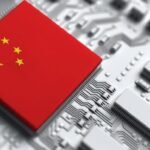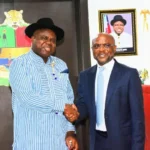Whereas the Tinubu administration is presenting the economy as growing based on statistical indicators being churned out, the reality on the ground seems to prove otherwise. For instance, the GDP growth after a rough joggling came to 3.84 per cent in Q4 2024, said to be the fastest growth in three years. The full year growth in 2024 settled at 3.40 per cent from 2.74 per cent in 2023. Services led the change at 5.37 per cent growth, while industry and agriculture grew moderately at 2.00 per cent and 1.76 respectively.
With inflation still high at around 25 per cent, the data shows the economy is expanding, though still short of the 6-7 per cent target the government is eyeing in the next few years. So, on a general note, the economy is growing but how does this translate in reality?
As a matter of fact, the economy is still lying comatose. What makes the economy to grow? On what is the growth based? It is baffling that Nigeria is still a mono-economy, surviving daily on that basis. The stark reality is that its revenue comes from crude oil sales. I shrug in utter despair and question how the country is able to survive.
Poverty is reeking and services are in shambles. One simple question I have often asked is what is the plight of the people? On social infrastructure, how many people have public water supply running in their kitchen and bathroom? How many people have six hours of electricity in a day?
There is no way this country would be able to meet the myriad of challenges confronting it from one and only oil revenue source. This is the naked truth that must be accepted by the country’s leadership. This thinking came to me in a flash. Come to think of it. Why is Nigeria in a mess year in year out without respite? Why can’t there be a glimmer of hope in the horizon to, at least, breathe life into desperate souls and enliven frayed nerves? Why are things getting worse every year despite all the promises made by successive governments across the land? Why are government promises not fulfilled?
The answers to these questions lie in the disoriented and stunted economic environment that is badly tainted with corruption. Anyone in position of authority in Nigeria, who relishes in saying that Nigeria earns over 95 per cent of her revenue from crude oil, without thinking about how to break the retrogressive cycle is not doing the country any good. There must be talk of diversifying this economy and making it robust and productive before we can make any headway. That is the only way this embarrassing situation can be changed.
Now talking a little more about the oil revenue, it is common knowledge that what is stolen is more than what gets into the system. Some argue that about 60 per cent of the oil and its revenue are stolen. That amount doesn’t get into government coffers. Then out of the remaining 40 per cent, 60 per cent again is lost to corruption. The erstwhile chairman of the Economic and Financial Crimes Commission (EFCC), Nuhu Ribadu, once estimated that over $380 billion has been lost to corruption in Nigeria since independence. He lamented that the amount is enough to replicate Europe with its development six times in Nigeria. The remaining 40 per cent is what is used in running the government at all levels.
Again, that remaining portion is siphoned by all means by people in government and their cronies. All the money meant for the provision of social services like roads, water, electricity, hospital, school, etc are stolen. At the end of the day, what gets to the people from the sum total oil revenue is less than 10 per cent. It is only in Nigeria that you hear of revenue sharing, revenue allocation, as if the money belongs to the leaders. Those that share these monies pocket most. The little fraction left is what is used in government that eventually gets to the people.
Consequently, the Nigerian economy is not only lying prostrate, it is under intense pressure to do the impossible. Some lofty slogans like Tinubu;s proposal for Nigeria to become a N1trn economy are good for a country that is working and has good leadership but not for a country that is not working; a country in limbo.
President Tinubu who proposed the N1trn economy wished the country well. But wishes can’t take us anywhere without concrete action. For wishes alone can never be horses. The wishes must be translated into concrete action to achieve success. And the environment must be conducive for the action to thrive and yield the desired result.
The Nigerian economy is like a civil servant that depends solely on monthly salary. The civil servant is even better in the sense that he or she knows what his or her salary is at the end of the month and could plan ahead. Nigeria’s mono-commodity economy depends on revenue from crude oil that is unstable. As the price of oil fluctuates in the world market, so does the revenue earned by the country fluctuates uncontrollably. The country and its economy can’t make any headway under such condition of uncertainty.
The Nigerian economy is as unstable as the fluctuation in the global crude oil price. Is there any civil servant out there who depends solely on monthly salary that is finding life easy? Is there a civil servant, who depends solely on salary that is able to meet basic needs, talk less of having extra for investment? A typical civil servant in Nigeria lives from hand to mouth. Most of our civil servants do private practice (PP) to meet up with demands. If a typical civil servant can’t make it with only one source of income, how would Nigeria be able to break even by depending on oil whose revenue is unstable? It is daydreaming, a figment of imagination, for anyone to think like that. If we must be honest to ourselves, we shouldn’t be talking of joining the league of America and European countries with trillion dollar economy, when basic social amenities have not been met.
Nigeria should consider going back to her agricultural roots that ensures economic sustainability, which was abandoned in the wake of the oil boom in the 70s. The roots of this country’s economy are in agriculture. The oil diseconomy has been grossly abused and mismanaged such that it would be foolhardy for anyone to rely on it for the economic development of the country.
The time when Nigeria would have developed with oil money has passed. Nigeria has got to a stage where there are too many greedy people craving for the oil money. The oil money won’t be able to satisfy the corrupt appetite of the bunch of crooks before you have anything left for national development. Reviving the agricultural productive sector would enable Nigeria get back to where she derailed in the 60s and early 70s. At that point, the country would regain its position as a net exporter of agricultural products.
Besides, the country would be self sufficient in food produce to be able to save the huge money being expended on importation. There is no G-20 country that is importing food. All the G-20 countries Nigeria is craving to join are net exporters of food and industrial products.
America is the biggest economy in the world with the largest export of food and industrial products. Japan, now the third biggest economy in the world after China, is self sufficient in food production and a major exporter of industrial products. The same situation applies to all the G-20 countries.
But where is Nigeria in the scheme? Nigeria is nowhere to be reckoned with. Nigeria, arguably, is the world’s largest importer of food and industrial products. So, where does she fit in the league of G-20 countries?
Everything about Nigeria’s economy is in contrast with what obtains in those countries. We don’t belong there yet, not even by 2050 except there is a miracle. Those countries, it should be noted, are not static, waiting for Nigeria to catch up with them. They are developing more and more. By 2050, they would have moved further ahead and created a wider gap, such that there is no way we could meet them.
As it is now, Nigeria should cut her coat according to her cloth. The country should reorder her priorities and do the basic things first. We can’t jump the gun. Except this is done, I’m afraid the much-talked about magical transformation would be a mirage. Corruption will stifle it.
While reflecting on this write-up, my mind went back to the time I was in primary school in the early 70s. We were taught that Nigeria’s economy was based on agriculture. Products like cocoa, rubber, timber, and palm produce were from the south, while groundnuts, cotton, hides and skin, etc were produced in the north. We were also taught about the farm settlements established by Dr. Michael Okpara in different parts of the defunct Eastern Region.
What happened to the farm settlements, cocoa and rubber plantations, etc? What happened to all the agricultural products that were exported? What happened to the forest reserves, the rubber and palm plantations? How did Nigeria get stable power supply before the oil boom? Why are the various state governments not doing anything to revive the agriculture sector?
Some state governors are just wasting people’s precious time and resources playing empty politics. With the exception of former Governor Bukola Saraki of Kwara State, who took the initiative to bring farmers from Zimbabwe to revolutionize agriculture in his state, no other governor has done anything to revamp the comatose agric sector. Why is the leadership not thinking about how to get this economy back to its feet?
This economy is on its knees; that is the stark reality that must be appreciated. An economy in that ugly state like ours needs to be given special treatment. In medical parlance, it is called intensive care. That exactly is what this economy needs. In treating this economy, there should be no distraction if cure must be achieved.
An economy that shows negative indices in virtually every sector can’t just be given a lesser treatment.
There should have been in place a select group of experts with vast experience in economic revitalization, to constitute an economic team that will systematically address the complex problems of the Nigerian economy. An economic team made up of politicians, as we have it in Nigeria is a whitewash.
Dr Onyekakeyah, a former member of The Guardian Editorial Board, is a public affairs commentator and a Daily Query columnist.



























